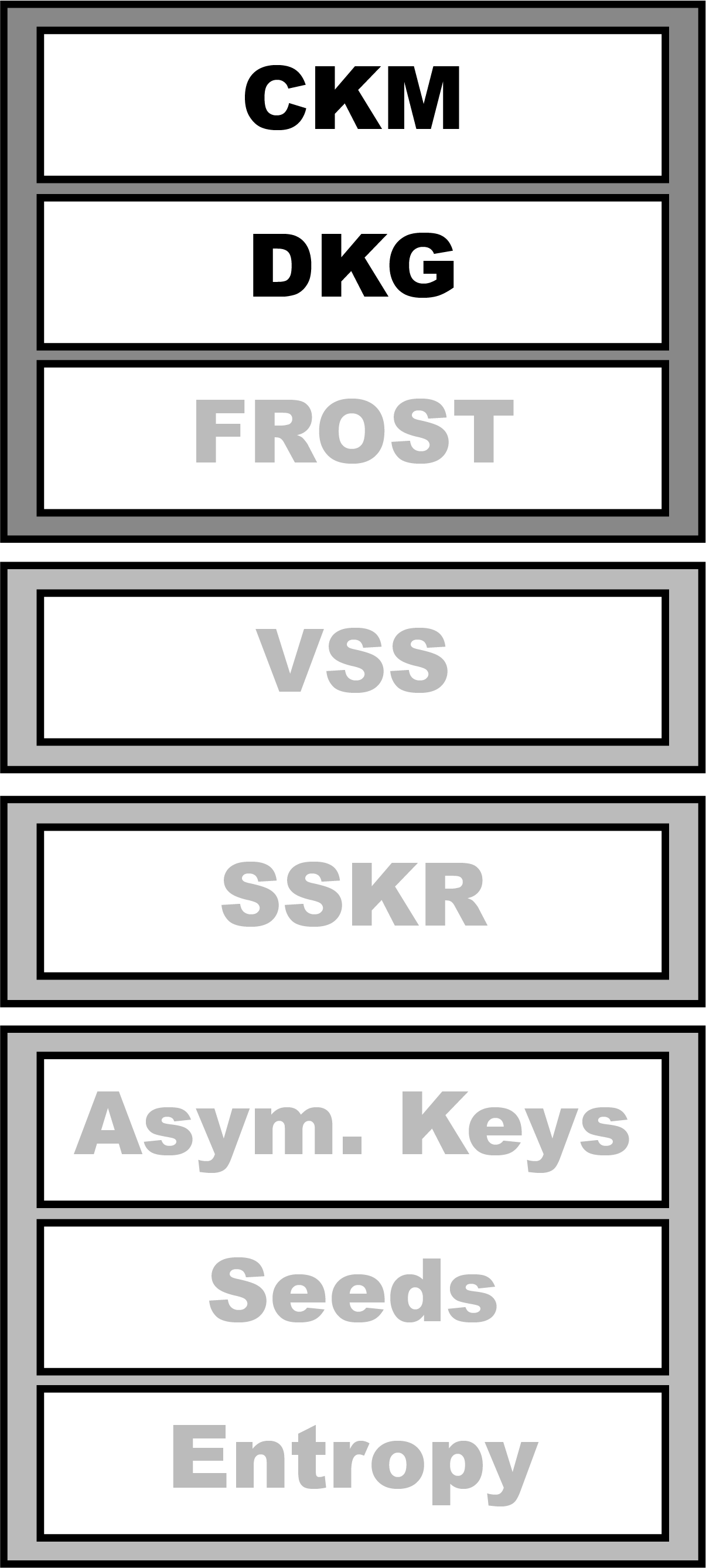Overview
Collaborative Key Management (CKM) is a Blockchain Commons architecture for generating, storing, and using keys in a collaborative way, where several different devices or entities come together and use their individual secrets to generate and regenerate keys solely for the brief instant that they’re needed. Keys do not exist except when they’re being used! Our roadmap target for deployment of solutions leveraging this CKM architecture is 2024+.
CKM expands upon Collaborative Seed Recovery (CSR), our existing architecture (begun in 2019 with SSKR, then expanded to the wider CSR architecture in 2022), which supports the resilience and recovery of seeds (not keys) using well-reviewed cryptographic code. Whereas CSR used sharding techniques to allow for the recovery of techniques, CKM uses similar fragmenting of keys during their usage! CKM is still a future project, but these current pages are intended to create a touchstone for the current CSR work, so that it’s appropriately future-proofed against current CKM development.
Why Is CKM Important?
Digital assets are an emerging asset class in the 21st century economy. Unlike physical assets, they require a secure digital custody solution. Unfortunately, current solutions either tend to depend on the support of a centralized exchange, which has the danger of creating a Single Point of Compromise, or depend on a user to secure their own keys, which has the danger of creating a Single Point of Failure.
CKM resolves the current problems of centralization and of self-custody solutions by providing a new methodology for sharing out the secrets necessary to create a key. The result is not endangered by the lossage possibilities of self-custody or the censorship and compromise dangers of third-party custody. It also improves on CSR by creating a system much less prone to compromise and incrementally less vulnerable to censorship.
See CKM Architectural Overview for more information on both general and specific problems solved by CKM.
How Does CKM Work?
CKM depends on SMPC (Secure Multi Party Computation). Its ultimate goal is to use secrets held by Secret Servers on the internet to generate keys to be used for a variety of services. No Secret Server individually has enough key material to access digital assets; instead those keys are only generated just as they’re needed by the Secret Servers working together.
ZF Frost became the first example of a production-ready public implementation of CKM, following its security review in 2023. Its Distributed Key Generation demonstrates how keys are generated in this manner.
See CKM Architectural Overview for more on the new technologies making this possible.
Links
Intro:
Components Intro:
Use Cases:
